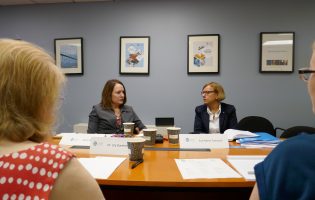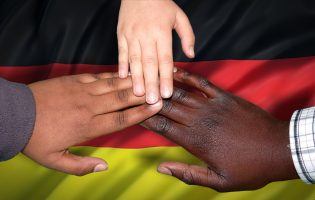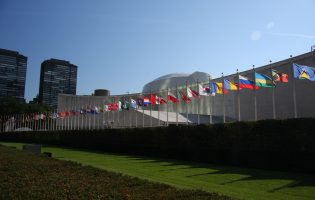Hajo Funke, DAAD/AGI Research Fellow
AGI is pleased to welcome Prof. Dr. Hajo Funke as a DAAD/AGI Research Fellow from October to December 2018. Prof. Dr. Hajo Funke is a DAAD/AGI Research Fellow from October to …

Workforce Integration of Immigrants in the United States and Germany
Local and Religious Perspectives As immigrants and refugees arrive in both the U.S. and Germany, they must quickly navigate new bureaucracies, languages, and workforces. Religious institutions and organizations are key …
Ufuk Topkara, DAAD/AGI Research Fellow
AGI is pleased to welcome Ufuk Topkara as a DAAD/AGI Research Fellow from October to December 2018. He has been active in promoting inter-religious dialogue since 2005 as an expert on …
Recent Authors
AGI provides knowledge, insights, and networks as tools to solve the challenges ahead.
Support Our WorkVolker Rein, DAAD/AGI Research Fellow
AGI is pleased to welcome Volker Rein as a DAAD/AGI Research Fellow in October and November 2018. Dr. Rein is an experienced social scientist specialized on developments in education and …

A Democratic Response to Digital Disinformation: The Role of Civil Society
Numerous factors complicate efforts to combat digital disinformation, not the least of which is the near impossibility of establishing a universal set of standards that could define what is and …

The Hijacking of the German Immigration Debate
When the Christian Democratic Union (CDU) and the Christian Social Union (CSU) had their ugly spat over migration in July, few would have expected it to result in a new …

The Chemnitz/Charlottesville Era and Readjusting What to Expect of Government
After the recent week of protests in Chemnitz, comparisons to the events of Charlottesville’s 2017 “Unite the Right” rally have abounded. And with good reason. Both events forced their respective …

Germany’s Charlottesville Moment
The protests and violence that took place last week in Chemnitz have brought home the depths of the western revolt against the liberal order which has been the norm in …

Europe Should Take Steve Bannon’s Threats Seriously
In an interview with the Daily Beast, Steve Bannon announced his plan for The Movement, a foundation to support right-wing populist parties in the upcoming European Parliament (EP) elections. Many …

The Berlin Wall: Limits and Legacies of Divisions
Fifty-seven years ago this week, the most tangible symbol of the Cold War started to emerge in the morning hours of August 13. As the East German government stretched barbed …






